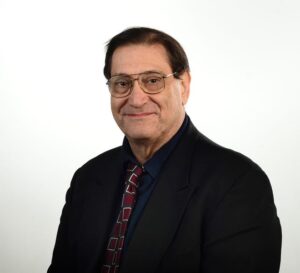From the Heart with Rabbi Liebowitz
Rav Kook wrote in Orot (Orot Yisrael 3:3, p. 146):
“Bonding with a Tzaddik, in order that the force of being of the Tzaddik’s soul should influence the imperfect soul [of the follower] is a very respectable matter in the process of spiritual growth. However, it requires great caution. If the follower should err regarding a Tzaddik and cling to his inner essence, he will also be adhering to his faults. These blemishes may sometimes be more detrimental to the follower than to the original soul [of the Tzaddik].”
Dear Friends,
Elon Musk, Will Smith, Johnny Depp, the Kardashians – these are but a few of the names that occupy the attention of our social media. From Elon Musk who is twittering about with free speech, to Will Smith whose slap was seen and heard around the world to Johnny Depp who domestic life is paraded before us to the Kardashians who, as the quip would have it are famous for being famous – all these really have little, if anything to do with my life. And yet, the energy expended in focusing on them is as baf- fling as it is inane. The above quote offers some perspective on our celebrity culture and its incessant preoccupation with personality.
Having just emerged from our Passover celebra- tions it is remarkable to note that the traditional Haggadah hardly mentions Moses if at all; such was our heritage’s posture to emphasize a focus on God and not on an intermediary. Other faiths depend greatly on extolling and imitating the virtues of ancient worthies as the central path to meaning and even salvation. Such was not our Jewish inclination.
The Rabbi of my youth, Rabbi Feinstein played down his role as exemplar. A modest man, he would quip; “Don’t do what the Rabbi does but what the Rabbis have taught us to do!” Our culture is one that is built on distraction, pointing us to consider such things and personages which have so little to do with our inner spiritual lives. I am as much a political junkie as anyone and yet, I have come to realize how very draining the news has become. No sooner is an election over then the prognostications of the future contests begin. We are polled to exhaustion.
Often lost in the holiday Spring observances is the counting of the Omer which begins on the second day of Passover; a forty-nine-day observance that is concluded with the holiday of Shavuot. Shavuot, one of our three ancient pilgrimage festivals (Passover and Sukkot being the other two) is both an observance of gratitude for the spring growth and the sustenance so pro- vided, and an historical reminder of Matan To- rah, the giving of Torah at Sinai. In no small way the holiday of freedom, Passover is only Act I of this seven-week experience. That experience begins with expressing gratitude for freedom and concludes with a clarification that freedom is meaningless without the bounds of Tradition and observance. The mystics of our heritage impelled us to engage in a deep meditative review of our spiritual inner selves. Much of it was based on the Kabbalistic tree of life and its review of the aspects of the Divine.
So many Jews of my generation and before has sought spirituality elsewhere, perhaps because our communities have failed to communicate in these deeper spiritual pursuits – emphasizing culinary Judaism over prayer and study of Torah. One Shavuot tradition impels Jews to this day to stay up and study Torah all night long until morning, this to make up for what was the neglect of our ancestors at Sinai – they fell asleep as the Ten Commandments were being given.
This season provides us with a challenge and a gift to wake up to our inner selves and our connections to the Holy One of Being.
B’Shalom
Rabbi Yossi Liebowitz, D.D.

